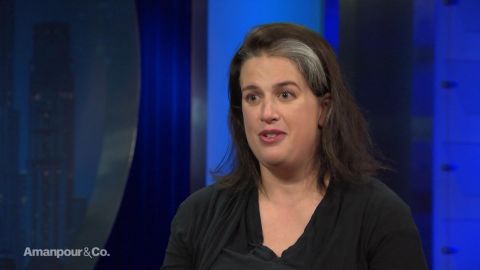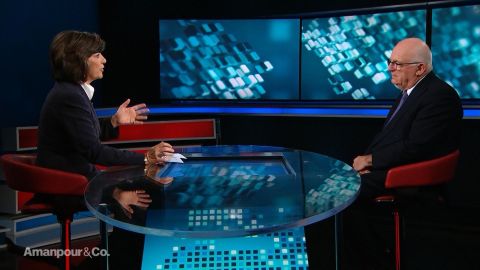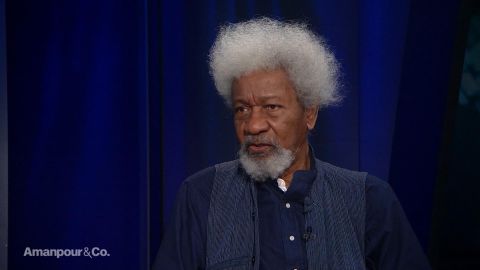Read Transcript EXPAND
WOLE SOYINKA, WINNER, NOBEL PRIZE FOR LITERATURE: It’s crucial in the sense that the two major parties have become more or less indistinguishable. And so I tend to see it as a contest between more or less one party and the rest.
CHRISTIANE AMANPOUR: Do you think the age in the era of coups and violence and military dictatorship are over for good now in Nigeria?
SOYINKA: I believe that in Nigeria, the military cannot attempt to come back and find — will find they’re not acceptable. But we — there’s still too much militarism in thinking in the government.
AMANPOUR: What does that mean?
SOYINKA: In other words, over-centralization. Under the military, everything was virtually centralized and even the governors. Some of the civilian governors behave exactly like military governors. Another center itself, the black culture of dictation still continues, you know. But after so many years, nearly a whole generation of military rule, it’s not too surprising.
AMANPOUR: You have entered this political fray. You back a certain organization. Is it called the Citizens Forum? You had that. And you have basically decided not to throw your weight behind the two main established candidates who is 70-plus-years-old, both of them, and to back a new younger one. And you sort of written a little bit about what Nigeria and Nigerian politics must look like to the rest of the world. I just wonder if you wouldn’t mind reading in that distinct — undistinguished voice of yours what you feel.
SOYINKA: Oh. Thank God it’s most negative. All right. Beyond her borders, Nigeria is a tale of citizens designated pariahs of the global community for whom special dossiers are opened, and units of security agencies are specifically assigned. Humanity litters the sand trails of the Sahara, it lines the Mediterranean Seabed with the bones of a desperate generation, seeking green pastures. Lines from my poems have been appropriated and embossed as epitaphs on the tombstones of Nigerians washed up the isle of Catania and accorded dignified burials by total strangers, certainly paid more respect than Nigerians themselves consider due to their own humanity.
AMANPOUR: I think that is really dramatic, particularly as you depict this wave of people who are trying to get to the west, who washing up on the beaches of various Mediterranean lands, it’s really profound.
SOYINKA: It’s true. Unfortunately, it’s true. I’ve been involved on so many levels with this exodus. It’s not Nigeria alone.
AMANPOUR: No.
SOYINKA: But I’m afraid we form quite a large proportion of those who perished in the Mediterranean.
About This Episode EXPAND
Christiane Amanpour speaks with Richard Dearlove, former Head of the British Secret Intelligence Service, about why ISIS is still a threat: and Wole Soyinka, Nobel-prize willing poet, about this weekend’s election in Nigeria. Alicia Menendez speaks with Becca Heller, the human rights lawyer who took on President Trump’s travel ban.
LEARN MORE


